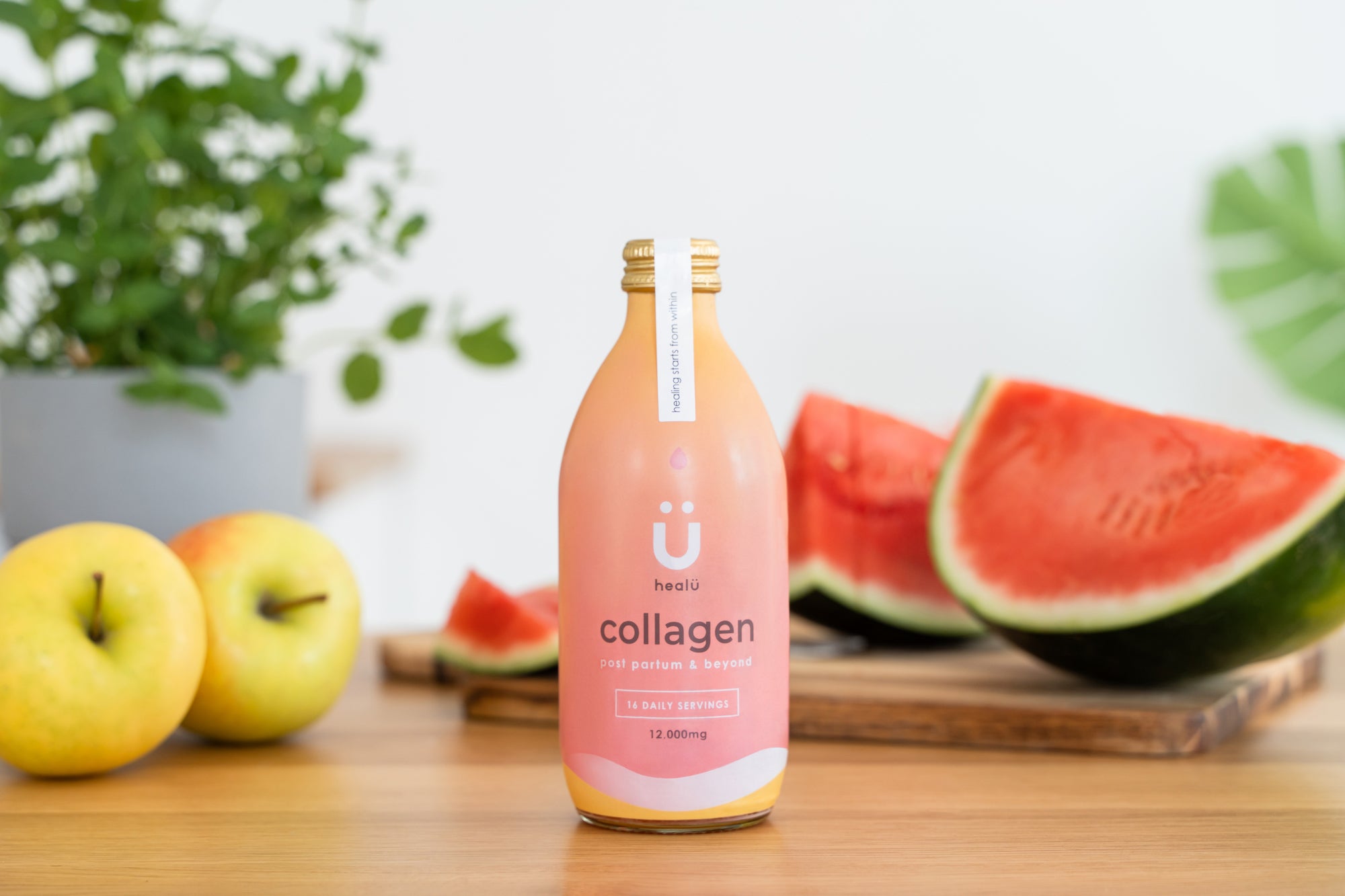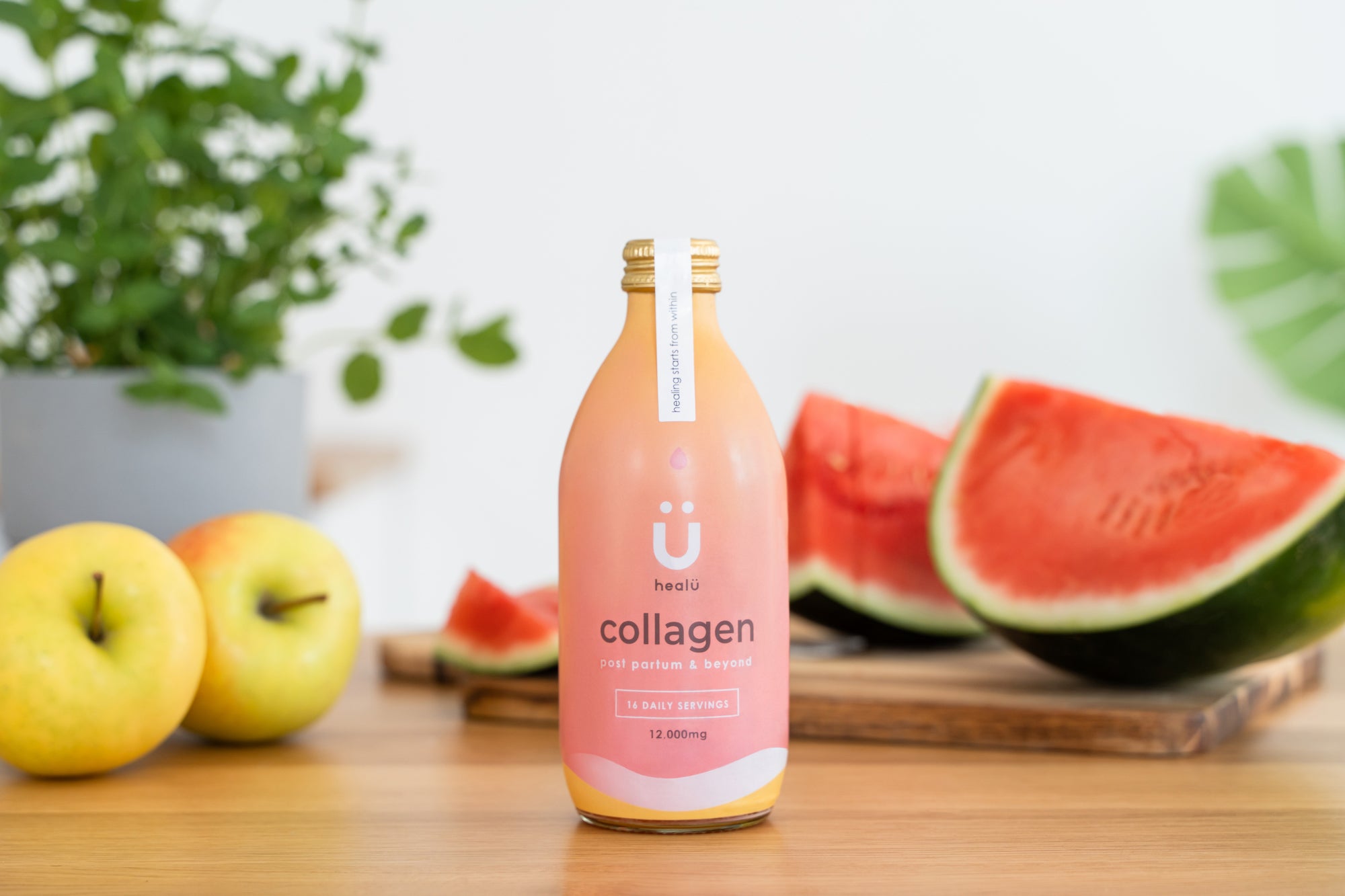Pregnancy is a time filled with excitement, change, and, let’s be honest, a fair share of questions. Whether it is about diet, supplements, or skincare routines, expecting mums often find themselves asking, Is this safe for my baby? One topic that has been coming up more often is collagen supplements. With collagen powders, capsules, and drinks becoming increasingly popular for skin, hair, and joint health, it is understandable that mums-to-be are curious about whether they can continue taking it during pregnancy.
So, can you take collagen while pregnant? Let’s look at the facts, what the experts say, and how you can make the safest choice for yourself and your baby.
What Is Collagen and Why Do People Take It?
Collagen is the most abundant protein in your body, acting like the glue that holds everything together. It is found in skin, bones, cartilage, muscles, and connective tissue. As we get older, our natural collagen production slows down, which can lead to wrinkles, less skin elasticity, and joint stiffness.
This is why many people turn to collagen supplements, hoping to:
-
Improve skin hydration and elasticity
-
Support hair and nail strength
-
Aid joint and bone health
-
Support muscle recovery
Collagen supplements are often made from bovine (cow), marine (fish), or porcine (pig) sources, although vegan alternatives aim to support the body’s own collagen production with plant-based nutrients.
Collagen During Pregnancy – Is It Safe?
The big question: can you take collagen while pregnant without any risks? In general, collagen is a naturally occurring protein already present in your body and in the foods you eat. If you get collagen from food sources such as slow-cooked meat, bone broth, or fish, you are simply consuming a natural part of your diet.
However, collagen supplements are a different story. While many experts believe they are generally safe for healthy pregnant women, there is not yet a lot of scientific research specifically focusing on collagen supplementation during pregnancy. This lack of large-scale studies means the safest approach is to talk to your midwife, GP, or a qualified nutritionist before adding any new supplement to your routine.
Potential Benefits of Collagen for Pregnant Women
Although research in pregnancy is limited, collagen may offer some helpful benefits during this stage of life:
-
Skin Support
During pregnancy, your skin stretches quickly to make space for your growing baby. Collagen may help maintain skin elasticity and hydration, which could support the skin’s natural resilience. -
Joint and Ligament Comfort
Pregnancy hormones loosen joints and ligaments to prepare for childbirth, which can sometimes cause discomfort. Collagen plays a role in supporting connective tissues, which may help maintain joint stability. -
Hair and Nail Strength
While many women notice stronger hair and nails during pregnancy thanks to hormonal changes, others may experience breakage or thinning. Collagen could provide extra building blocks for healthy hair and nails. -
Protein Intake
Protein is essential during pregnancy for your baby’s growth and development. Collagen can contribute to your daily protein needs, especially if you struggle to get enough through your regular diet.
How to Take Collagen Safely in Pregnancy
If your healthcare provider gives you the go-ahead, here are some tips to make collagen supplementation safer and more effective during pregnancy:
-
Choose a high-quality product – Look for collagen from reputable UK brands that offer third-party testing for purity and safety.
-
Avoid unnecessary additives – Some flavoured collagen powders contain sweeteners, artificial colours, or herbal extracts that may not be recommended during pregnancy.
-
Stick to the suggested dose – More is not always better. Follow the manufacturer’s guidelines or your healthcare provider’s advice.
-
Opt for hydrolysed collagen (collagen peptides) – This form is broken down for easier digestion and absorption.
-
Combine with a balanced diet – Collagen should not replace other sources of protein and nutrients. Continue to eat a varied diet rich in fruits, vegetables, whole grains, lean meats, and dairy or plant-based alternatives.
Food Sources of Collagen and Collagen-Supporting Nutrients
If you prefer to skip supplements altogether, you can boost your collagen intake through food. Natural collagen-rich foods include:
-
Bone broth made from chicken, beef, or fish bones
-
Slow-cooked meats like brisket or oxtail
-
Fish with skin, such as salmon
-
Egg whites
Your body also needs certain nutrients to make collagen, such as vitamin C, zinc, and copper. Including foods like citrus fruits, berries, leafy greens, nuts, seeds, and legumes will help support your body’s natural collagen production.
Things to Keep in Mind Before Starting Collagen During Pregnancy
Even though collagen is considered safe for most healthy people, it is always worth remembering a few important points:
-
Individual allergies – If you are allergic to fish, beef, or pork, check the source of your collagen supplement.
-
Digestive comfort – Some people experience mild bloating or stomach upset when they first start taking collagen.
-
Overall supplement load – Many pregnant women already take prenatal vitamins, iron, or other supplements. Adding too many at once can be unnecessary or even counterproductive.
What the Experts Say
Midwives and nutritionists generally agree that getting nutrients from whole foods is the safest first option during pregnancy. Supplements, including collagen, should only be added when there is a clear need and under professional guidance. Since collagen is a protein, it is not considered a risky supplement in the same way as certain herbs or high-dose vitamins, but the “better safe than sorry” approach applies when research is limited.
Final Thoughts – Can You Take Collagen While Pregnant?
The short answer is that collagen is a natural protein already found in your body and diet, and for most women, it is considered safe in food form during pregnancy. When it comes to supplements, there is no strong evidence showing harm, but there is also not enough pregnancy-specific research to recommend it without caution.
If you are wondering can you take collagen while pregnant, the best step is to discuss it with your healthcare provider. They can help you weigh the potential benefits for skin, joints, and protein intake against the lack of targeted research. Choosing high-quality, clean products and sticking to sensible doses will help you make the safest choice for both you and your baby.
Pregnancy is a time to nourish your body in the best possible way, and whether or not you choose to include collagen, a balanced diet, plenty of hydration, and gentle self-care will go a long way in supporting you through this incredible journey.








